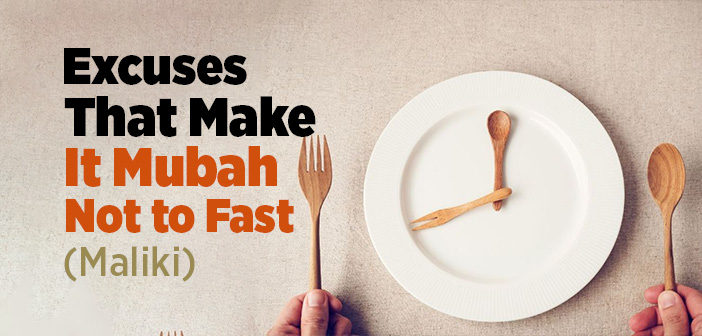What are the excuses that make it permissible not to fast?
Allah Ta’ala has not burdened his servants with burdens they are unable to carry. This situation also applies to the topic of fasting. Thus Allah has made clear the eases that have been ensured on the matter of fasting:
” [Fasting for] a limited number of days (has been made fardh for you). So whoever among you is ill or on a journey [during them] – then an equal number of days [are to be made up]. And upon those who are able [to fast, but with hardship] – a ransom [as substitute] of feeding a poor person [each day]. And whoever volunteers excess – it is better for him. But to fast is best for you, if you only knew. “[1]
During Ramadhan, the excuses that make it mubah to not fast are as follows:
- Journey: If these conditions are found, it is not needed to fast on a journey: When the journey is made to a distance where it is possible to shorten the salat, for the journey to be mubah, to have gotten out on the road before the sun has risen on the first day of the journey, for the intention of not fasting to be made, when it is night, for the next day on the other days of the journey.
- Ilness: A very sick person or the people who have been advised not to fast due to the reccommendation of a trustworthy believing Muslim doctor.
- Pregnancy and breastfeeding: If pregnant and breast feeding women are worried that if they fast their children may be harmed, they may not fast.
- Old Age: Elderly men and women who are unable to fast are not obliged to fast. If they are unable to fast throughout the whole year, they need to give a one-person fidya for every fasting season.
- Severe hunger and thirstiness: According to medical facts, when someone is fasting and there if they fear they may die due to hunger and thirst, they may break their fast.
- When being forced: A person may break their fast if they are being forced to do so by someone who is threatening them with a gun or other deadly weapon.
[1] Surat Baqarah, Ayah 184
Source: Fiqh1 (According To The Maliki School Of Islamic Law), Erkam Publications





